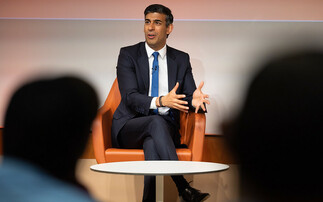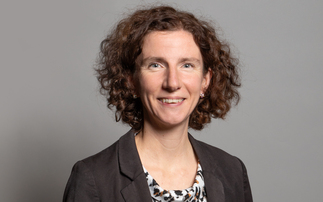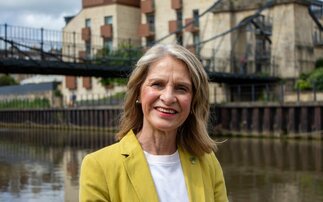David Cameron's speech to COP21 Summit in Paris - in full
Thank you very much Mr President and can I start by thanking the French President and the French people for hosting us here in Paris.
Now we're at the stage of this conference, after a whole series of speeches, where I think we can safely say that every point that needs to be made has been made, although not by every single speaker.
We all know exactly what is needed to make a good deal here in Paris.
We need a deal that keeps 2 degrees alive.
A deal with a binding legal mechanism.
A deal that has a 5 year review so we can see how we are doing.
A deal for the poorest and most vulnerable in terms of finance.
A deal so that we can measure and verify what happens with the agreement that we make.
And a deal that transfers technology from the richest countries to the poorest countries.
So let me take this argument the other way around.
Not what we need to succeed - we all know that - but what we would have to say to our grandchildren if we failed.
We'd have to say, "it was all too difficult", and they would reply, "well, what was so difficult?"
What was it that was so difficult when the earth was in peril?
When sea levels were rising in 2015?
When crops were failing?
When deserts were expanding?
What was it that was so difficult?
Was it difficult to agree on 2 degrees?
Was it difficult when 97% of scientists the world over have said that climate change is urgent and man-made and must be addressed?
When there are over 4,000 pieces of literature and reviews making exactly this point?
Why was, they would ask us, sticking to 2 degrees above industrial levels so difficult?
Presumably we might have to say: well it was difficult to reach a binding agreement.
But they would ask us why is it difficult to reach a legally binding agreement when in 2015 there are already 75 countries - including countries across most of the continents of our world - that already have legally binding climate change legislation?
Countries like Britain.
And countries that aren't suffering from having legally binding climate change legislation; countries that are thriving with that legislation.
Perhaps we'd have to argue it was too difficult to have a review after 5 years.
Why, they'd ask us, is it difficult to have a review after 5 years?
No one is being asked to preordain what that review would say.
No one is being asked to sign up to automatic decreases in their carbon emissions.
If we are off track in 5 years' time, a review isn't difficult.
Perhaps we'd have to say it was too difficult to reach an agreement about finance, too difficult to get to $100 billion of climate finance by 2020.
But how could we argue to our grandchildren that it was difficult when we've already managed to generate £62 billion by 2014?
How can we argue that it's difficult when in London alone there's 5 trillion of funds under management and we haven't even really begun to generate the private finance that is possible to help in tackling climate change?
They'll ask us: was it really too difficult to agree to a mechanism to measure and verify what we've all signed up to?
How can that be so difficult, that we agree that over time we must make sure that we are delivering on the things that we said we would deliver on here in Paris.
And finally, would we really be able to argue that it was too difficult?
Too difficult to transfer technology from rich countries to poorer countries?
Our grandchildren would rightly ask us: what was so difficult?
You had this technology, you knew it worked, you knew that if you gave it to poor and vulnerable countries they could protect themselves against climate change - why on earth didn't you do it?
What I'm saying is that instead of making excuses tomorrow to our children and grandchildren, we should be taking action against climate change today.
What we are looking for is not difficult, it is doable and therefore we should come together and do it.
Thank you.
This article is part of BusinessGreen's Road to Paris hub, hosted in association with PwC.







